Distracted PM looks to the election as colleagues wonder what he’s achieved
Despite Anthony Albanese’s optimism for a second term, hard questions are starting to be asked about his leadership. There’s a sense within Labor that the party’s ‘good story’ won’t be heard.
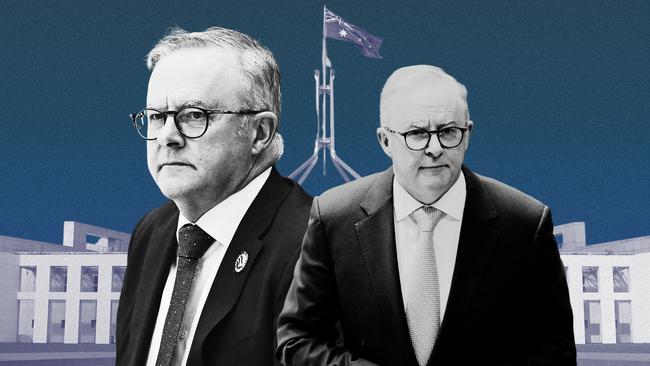
After another lost week for Labor in parliament this week and only three more sitting weeks for the House of Representatives this year, the government’s remaining legislative and policy agenda is out of time or grounded in the Senate.
Even with a budget now scheduled for March 25 next year ahead of an election most likely to be on May 17, Labor’s major parliamentary and political agenda will be focused on regaining momentum, spruiking the government’s achievements, demonising Peter Dutton and selling a second-term agenda.
Indeed, in the only October meeting of the Labor caucus in Canberra this week, the Prime Minister threw forward to next year’s election, telling his colleagues to focus on the “good story” of what has been achieved since May 2022 and saying there would be “a big second-term agenda” for Labor.
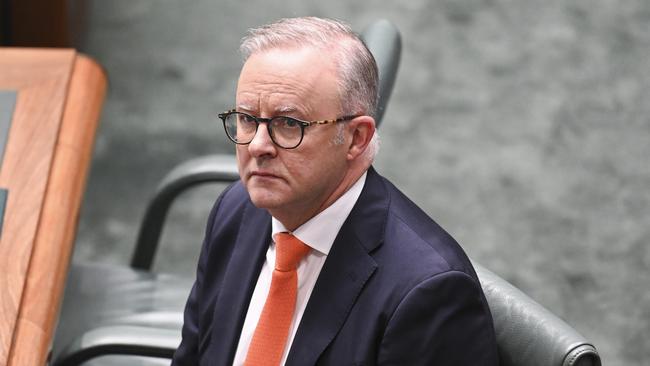
Although there are three more sitting weeks scheduled for November and possibly four sitting weeks early next year before an Ides of March or full-term May election, Albanese basically has conceded the remainder of 2024 will not have major legislative movement and it will be a parliament of politics as Labor reintroduces failed proposals to embarrass the “No-alition” of the Liberal-Nationals and the Greens.
Before leaving for Laos and this week’s Association of Southeast Asian Nations summit, Albanese urged MPs to sell Labor’s economic record – a headline inflation rate of 2.7 per cent, that unemployment remained low and two budget surpluses – while campaigning on new commitments and “the risk of Peter Dutton”.
Albanese continues to predict confidently an outright Labor victory – which means at least 78 seats – and vows to become the first prime minister to be re-elected since John Howard in 1998 after a series of Labor and Liberal leadership failures.
But, despite Albanese’s confidence and bravura optimistic reading of winning and losing seats based on holding the seats won in Western Australia in 2022 and winning seats in Queensland, there is a real expectation within the ALP that the first-term Albanese government will go into a minority government as Julia Gillard did in 2010 after the removal of Kevin Rudd during his first term as prime minister.
Apart from public polling showing stalled primary vote support for the ALP at record low levels, falling satisfaction with Albanese’s leadership, a competitive Coalition and stubborn support for the Greens, there are Labor MPs who feel “the penny has dropped” with voters and only optimistic seat counts give Labor a chance of defying history as a first-term government by improving its majority to win outright.
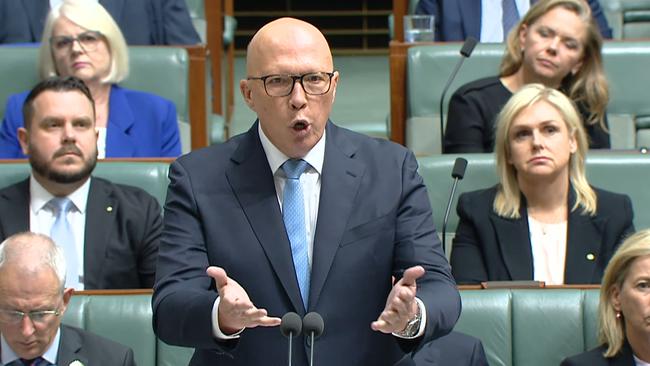
Labor’s low primary vote – still around the record low winning figure of 32 per cent – and the threat from Greens and independent candidates are the reason for the expectation of going into minority government and being forced to govern with Greens and Climate 200 teal MPs.
The minority government expectation at this stage is based on the Coalition’s challenge to win back about 17 seats for an outright victory and an inability to deal with teals for minority government support on the floor of the House of Representatives.
While Coalition MPs recognise the difficulty in trying to win enough seats for a majority in their own right – or even just close enough to be able to rely on a couple of independents – the Opposition Leader recently has pointed to the changed expectations since May 2022 that started as an assumption of Labor victory because there hasn’t been a first-term government loss for more than 80 years, to an expectation of minority government and then to a slight concession of an outside chance for a Dutton government.
But the real questions are for Albanese and Labor on the government benches in parliament as to whether they can regain lost political momentum after two years of distractions from the failed Indigenous voice to parliament referendum and the confusion over the Israeli-Hamas-Hezbollah conflict and associated social disruption. Albanese’s handling of the referendum and Israeli-Palestinian divisions have been demonstrable leadership failures, turning off the public, and not addressing the priority of cost-of-living pressure that enabled Labor’s victory over Scott Morrison far outweighs any other issue.
In this only parliamentary sitting week of October Albanese was completely sidetracked by the unprecedented failure to arrive at a consensus for a condolence motion to mark the first anniversary of the October 7 Hamas terror attacks that killed 1200 Israelis.
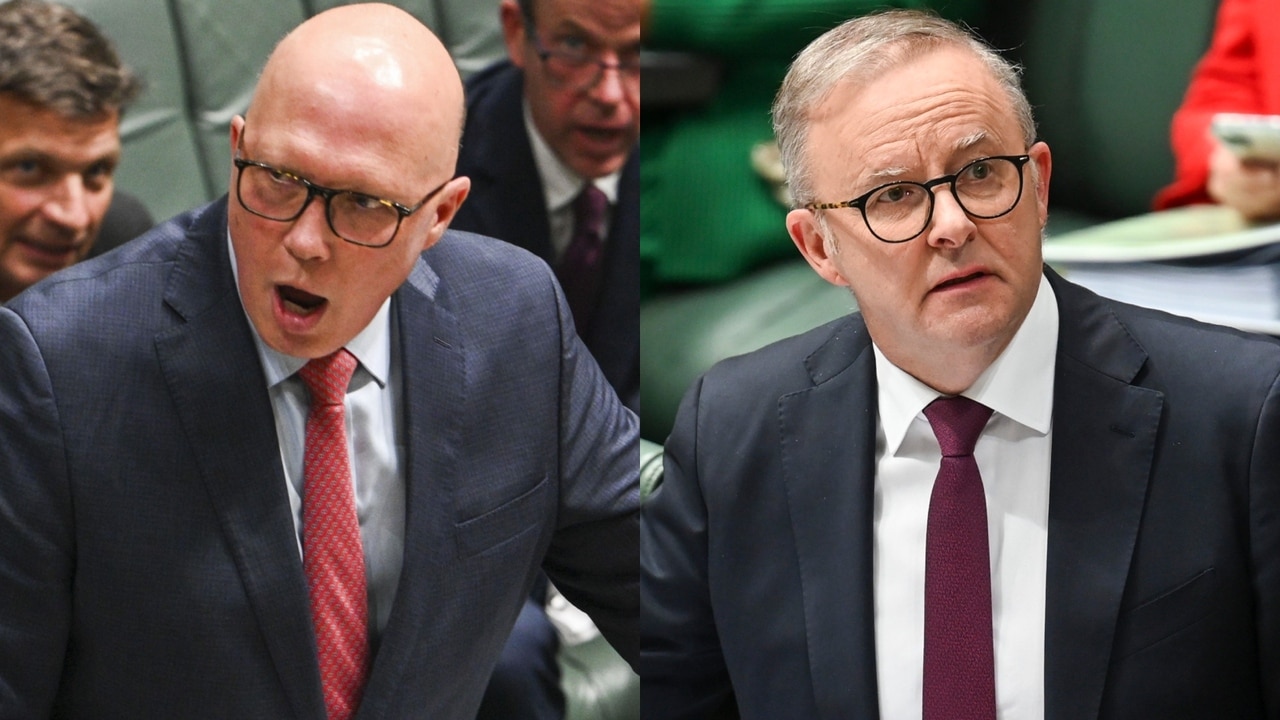
Albanese was left with Jewish and Muslim Australians dissatisfied with Labor’s position, pleasing no one with clouded, equivocal statements that could not simply commemorate the 1200 deaths without drawing in contentious foreign policy changes breaking bipartisan positions on Israel and Palestine.
Yet the real political damage to Labor was not on issues of foreign policy but on the morphing of a dangerous international conflict a world away with immigration, security and law and order issues domestically.
Polling has shown that most Australians are against the public disruptions of pro-Palestinian protests, particularly the threatening occupation of university buildings and street demonstrations, and it is clear both Jewish and Muslim communities feel betrayed at home.
Again, the core political damage being done to Labor is that its attempts to tell the “good story” are being smothered, and even within the parliamentary party there is a growing sense of having failed to achieve enough in Labor’s first term.
In the ALP caucus and in parliament Albanese, Deputy Prime Minister Richard Marles, house leader Tony Burke and Treasurer Jim Chalmers all tried to run through Labor’s list of achievements on cutting inflation, government-funded wage rises for aged care and childcare workers, fee-free TAFE courses, lower prescription costs, workers’ rights, environmental changes, tax cuts and urgent medical care centres.
But the reality of many of these achievements is that while they appeal to core Labor constituencies, they have burned goodwill with the business, industry, mining and agriculture sectors and created concern among investors.
Many of Labor’s marquee items – such as housing reforms, critical minerals development, renewable energy and green hydrogen proposals – have simply been grounded in the Senate, such as social housing schemes, or simply failed to eventuate, such as green hydrogen or battery manufacture.
Labor’s signature housing schemes have been reduced to political decoys, being reintroduced without chance of success merely to embarrass the Greens in a desperate fight for inner-city votes in Sydney, Brisbane and Melbourne. It is a sober warning that New Zealand Labour failed in large part because of law and order and its inability to build the houses promised despite the money spent. What’s worse is that Labor’s core promise of a cut in power bills of $275 by 2025 is within a few weeks of officially failing as voters nominate rising grocery and energy bills as their biggest financial burden.
Even as Albanese was telling his colleagues to concentrate on the good story of economic management and inflation control, the Reserve Bank was releasing the minutes of its last meeting that said an interest rate rise could not be ruled out because of persistent inflation.
At the same time, company insolvencies forced by high interest rates and energy costs reached a record high of 6600 firms failing in the six months to September.
All of this flies in the face of Albanese’s optimism, predictions of an outright victory, vow not to deal with the Greens as a minority government, determination to make the history books as the first second-term prime minister in 30 years and to demonstrate that he has been underestimated again.
It is this long-term concentration of Albanese on having a second-term agenda for Labor that makes some of his colleagues fear he has not concentrated enough on achieving positive outcomes in the first term because he has lacked strategy and has been distracted because he viewed the election as Prime Minister almost as an end in itself.
Certainly Albanese is proud, and rightly so, of being elected as Prime Minister after coming from a housing commission home with a pensioner single mother, but there is a tendency to dwell on records and numbers.
In Albanese’s office a close eye on the length of service of prime ministers – currently Albanese is sitting at the 20th longest-serving prime minister and is closing quickly on Edmund Barton at 19th.
It is a curiosity that if the election is held in mid-May, as Albanese has always said it will be, then he will overtake Rudd at 18th, Gough Whitlam as 17th and Malcolm Turnbull at 16th.
Even if Labor falls into minority government and a leadership spill is triggered and Albanese loses, he will have served longer than his friend Rudd and idol Whitlam.
But there is still a long way to go for Labor in what will be effectively one of the longest election campaigns in history.




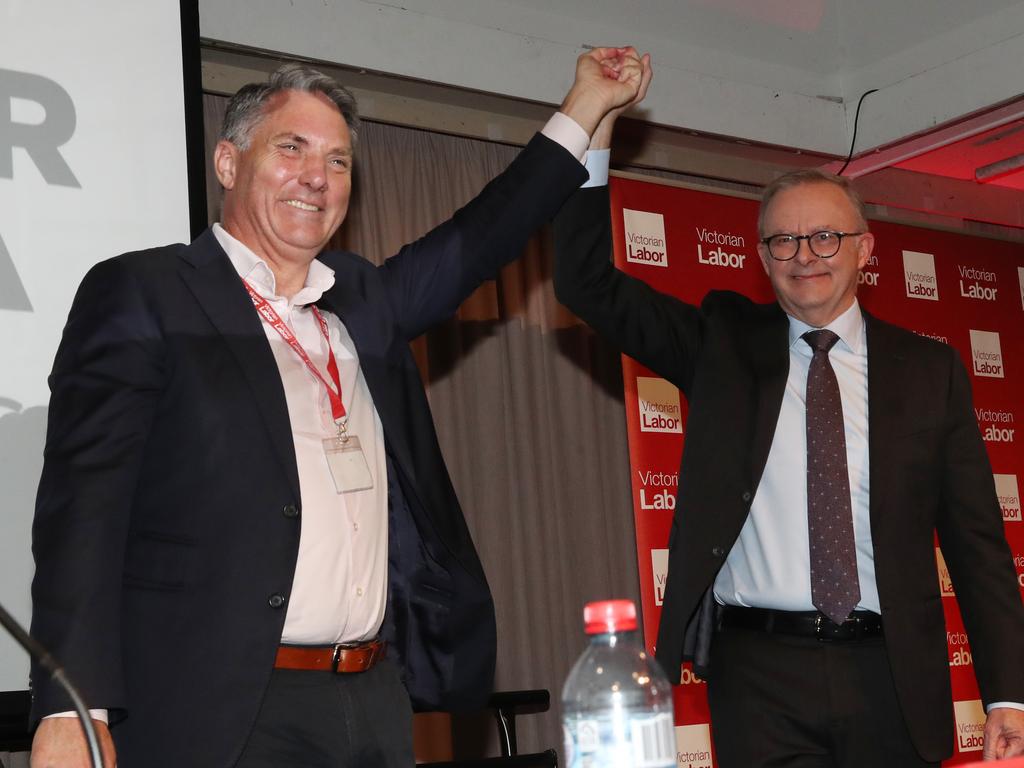

The first term of the Albanese Labor government is effectively over, the election campaign has essentially begun and hard questions are about to be asked about Anthony Albanese’s leadership, Labor’s chances of an outright victory, what has been achieved and whether a whole term of ALP power has been wasted.